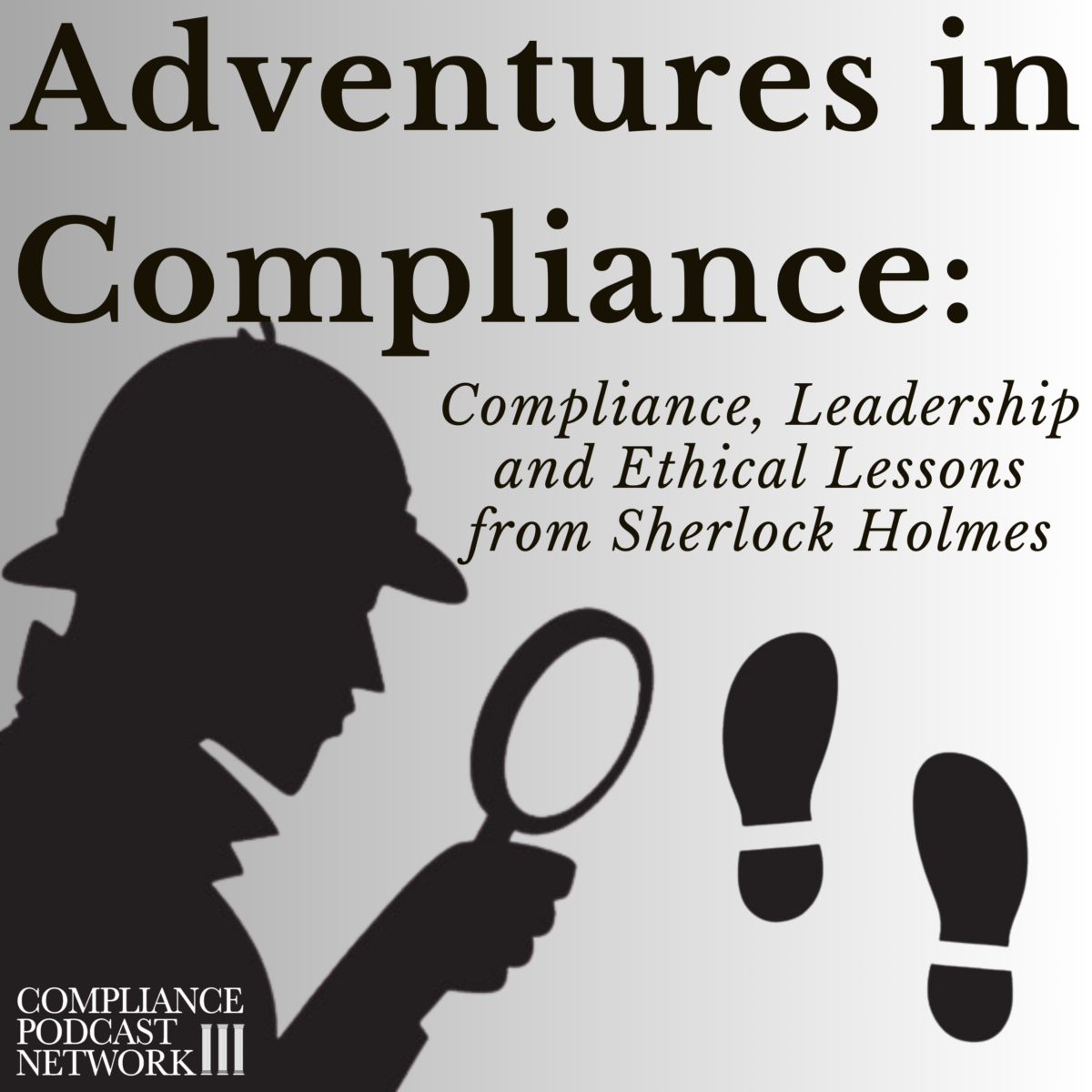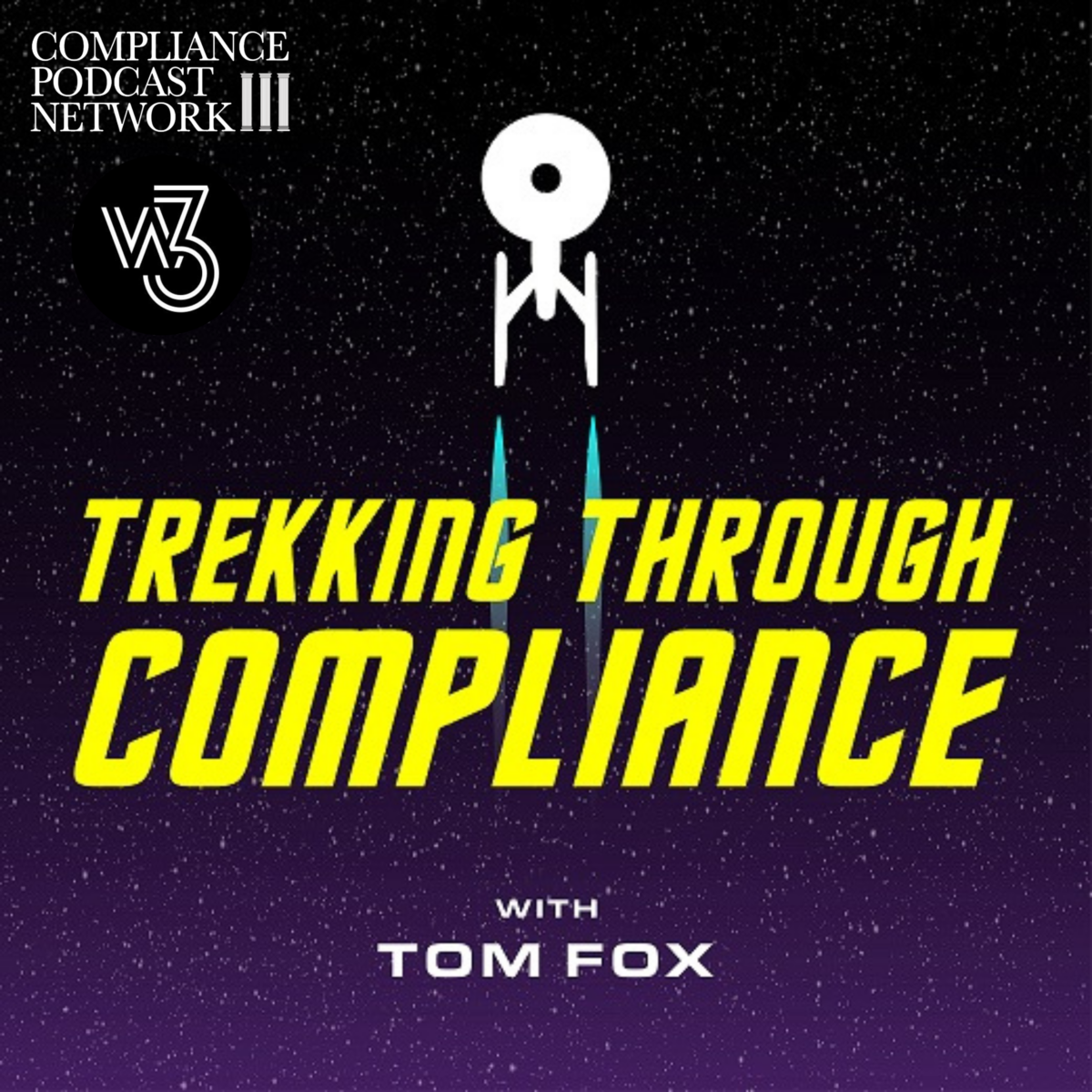Last month, I wrote a blog post on the tone at the top, exemplified in Star Trek’s Original Series episode, Devil in the Dark. Based on the response, some passionate Star Trek fans are out there. I decided to write a series of blog posts exploring Star Trek: The Original Series episodes as guides to the Hallmarks of an Effective Compliance program set out in the FCPA Resources Guide, 2nd edition. Today, I will continue my two-week series by looking at the following Hallmarks of an Effective Compliance Program laid out by the Department of Justice (DOJ) and Securities and Exchange Commission (SEC) in the FCPA Resources Guide, 2nd edition. Today, we look at lessons on financial incentives and disciplinary measures in a best practices compliance program from the episode Mirror Mirror.
The episode Mirror, Mirror offers a unique and insightful perspective on the importance of financial incentives and disciplinary measures in shaping organizational culture. Through the lens of a parallel universe where the Federation’s values are inverted, this episode provides valuable lessons for compliance professionals on how incentives and disciplinary measures can influence behavior and promote ethical standards.
In Mirror, Mirror, Captain Kirk, Dr. McCoy, Scotty, and Uhura are accidentally transported to a parallel universe due to a transporter malfunction. A brutal Terran Empire stands for the United Federation of Planets in this “mirror universe.” Here, officers advance through assassination, and disobedience is met with severe punishment. The stark contrast between this universe and the ethical Federation highlights the significance of well-structured incentives and disciplinary measures in fostering a culture of compliance.
Lesson 1. The Role of Incentives in Promoting Ethical Behavior
Incentives motivate employees to adhere to compliance standards and ethical behavior. The episode illustrates the impact of perverse incentives and how they can drive unethical actions. You must work to align your financial and non-financial incentives with your organization’s ethical values. Businesses should design incentive structures that promote compliance and ethical behavior. This can include recognition programs, bonuses for ethical conduct, and career advancement opportunities for those who demonstrate integrity. Celebrating and rewarding employees who adhere to compliance standards reinforces the importance of ethical behavior and encourages others to follow suit.
Through this episode’s ‘mirror’ structure, we can use examples of perverse incentives to gain insight into the incentives that will work in 2024. In the mirror universe, officers are incentivized to commit acts of violence and treachery to earn promotions and power. This system rewards unethical behavior and creates a toxic environment of fear and mistrust. Now, contrast these actions with the universe, which encompasses the United Federation of Planets (UFP) and promotes values of cooperation, integrity, and mutual respect. This contrast emphasizes aligning incentives with ethical standards to foster a positive organizational culture.
Lesson 2. Fair and Consistent Discipline
Disciplinary measures are essential for maintaining accountability and addressing non-compliance. However, they must be implemented fairly and consistently to avoid creating a culture of fear. Every compliance function must ensure that disciplinary actions are consistent, fair, and proportionate to the severity of the violation. This approach helps maintain trust in the compliance program and encourages accountability. Moreover, it creates an environment where employees feel comfortable reporting non-compliance without fear of retaliation. This requires clear communication about the disciplinary process and assurance of confidentiality.
Once again, in the alternative universe our Enterprise crew finds itself in, we can learn from the converse of that from the UFP. In the mirror universe, there is severe punishment, and discipline is maintained through fear and harsh punishment. As a result, people develop a toxic culture where self-preservation takes precedence over commitment to moral behavior. Our universe’s Enterprise’s approach to discipline emphasizes accountability and correction rather than punishment, illustrating how fair disciplinary measures can support a healthy compliance culture.
Lesson 3. The Influence of Leadership on Incentives and Discipline
Leadership is critical in shaping the effectiveness of incentives and disciplinary measures. Leaders set the tone for organizational culture and can influence employee behavior through actions and decisions. Top management should lead by example. Business leaders should model ethical behavior and demonstrate a commitment to compliance through their actions and decisions. This sets a positive example for employees and reinforces the organization’s values. In addition to leading by example, the C-Suite and Board of Directors should actively support compliance initiatives, including developing and promoting incentive and disciplinary systems that align with ethical standards.
In both universes, Captain Kirk’s leadership style is a key factor in influencing the behavior of his crew. In the prime universe, his commitment to ethical standards and fair treatment promotes a culture of integrity. In the mirror universe, the universe’s leadership at all levels encourages treachery and violence, demonstrating how leaders can perpetuate a toxic culture through negative incentives and harsh discipline.
Lesson 4. Designing Effective Incentive and Disciplinary Systems
To create a culture of compliance, organizations must carefully design their incentive and disciplinary systems to align with ethical standards and organizational values. First and foremost, your incentives and discipline must align with your organizational values and goals. This helps reinforce the importance of compliance and ethical behavior. When it comes to incentives, they are not simply financial but non-financial incentives. Your organization should offer a variety of incentives, such as financial rewards, recognition programs, and career development opportunities, to appeal to different motivations and preferences.
To design appropriate incentives and discipline, you should start with clear and transparent policies governing the incentive and disciplinary program. These policies should be well-defined, communicated, and easily accessible to all employees. This includes the specific rewarded or penalized behaviors, the criteria for determining appropriate incentives or disciplinary actions, and the appeal and review processes.
Lesson 5. Continuous Monitoring and Improvement
Your compliance team should continuously solicit employee feedback on the effectiveness and fairness of the incentive and disciplinary programs. This is a part of any Speak Up culture, as you want to encourage open communication channels for employees to raise concerns or suggest improvements. Metrics are a part of every system used to track the program’s performance, including incident rates, consistency and fairness of disciplinary actions, and employee satisfaction and trust in the program. Benchmarking against industry trends can also be a critical piece of information.
Always remember that unintended consequences can negatively impact every compliance program. Therefore, you should proactively identify and address any unintended consequences or perverse incentives that may arise from the program. Finally, adjust and improve your program to mitigate potential negative impacts on employee behavior or organizational objectives.
Mirror, Mirror provides a powerful illustration of the impact of incentives and disciplinary measures on organizational culture. By learning from the stark contrasts between the mirror and the prime universe, compliance professionals can design systems that promote ethical behavior and foster a culture of compliance. Incorporating these lessons into your compliance strategy can help ensure that your organization is prepared to navigate the complexities of today’s regulatory environment while upholding the highest ethical standards. As the episode demonstrates, the right incentives and disciplinary measures can make all the difference in creating a positive and compliant organizational culture.
Join us tomorrow as we consider the lessons from the Star Trek episode The Omega Glory on dealing with third parties.








